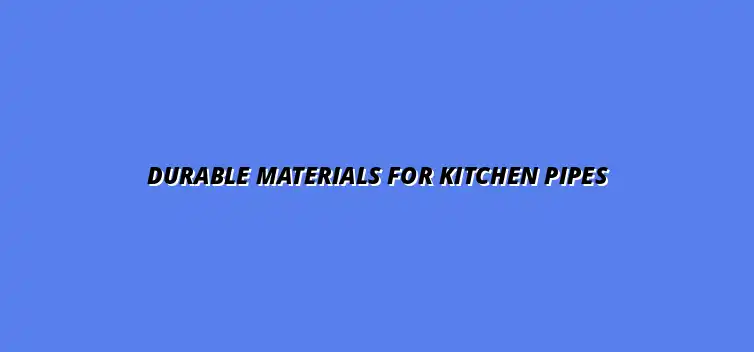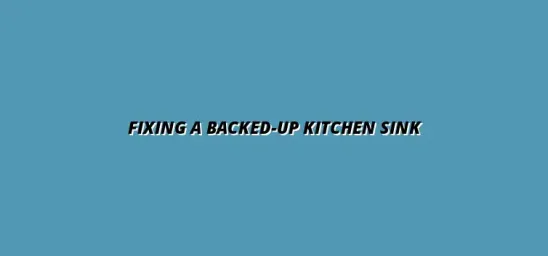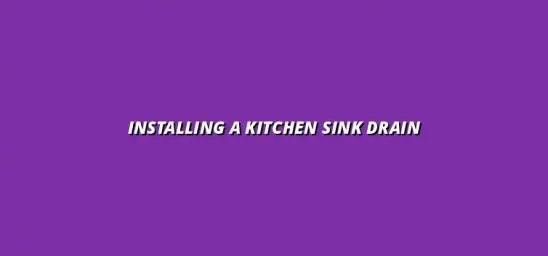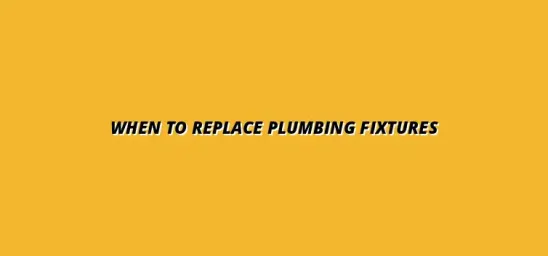
Durable Materials for Kitchen Pipes
Understanding Kitchen Plumbing Needs
When it comes to our kitchens, plumbing plays a crucial role in ensuring everything runs smoothly. From the moment we turn on the tap to wash our hands to the intricate connections that allow our dishwashers to function, each component is essential. Understanding our kitchen plumbing needs helps us appreciate the importance of selecting the right materials and systems for our homes. For example, ensuring proper essential kitchen plumbing maintenance can prevent costly repairs down the line.
Every kitchen has unique requirements, and various factors influence the choice of plumbing systems. This includes the kitchen's layout, the appliances used, and even local building codes. When we grasp these needs, we can make informed decisions that enhance our kitchen's efficiency and longevity!
The Role of Plumbing in Kitchen Functionality
Plumbing is more than just pipes and fittings; it’s the backbone of our kitchen's functionality. It facilitates water supply for cooking, cleaning, and maintaining hygiene. Without a reliable plumbing system, performing daily tasks becomes challenging and frustrating. Regular maintenance, such as that described in this annual plumbing maintenance checklist, is key to avoiding major issues.
Some key functions of kitchen plumbing include:
- Providing hot and cold water for various tasks.
- Draining wastewater effectively to prevent clogs.
- Connecting appliances like dishwashers and refrigerators.
By ensuring that plumbing is efficient and reliable, we can enjoy a seamless cooking experience. This understanding helps us prioritize our plumbing needs when planning or renovating our kitchens.
Key Considerations for Choosing Kitchen Plumbing Pipes
Choosing the right pipes for kitchen plumbing is essential for both functionality and durability. Factors to consider include the material’s lifespan, resistance to damage, and suitability for water quality. Each material has its advantages and may be better suited to different kitchen environments. Understanding the top materials for drainage systems is a great starting point.
Here are some considerations to keep in mind:
- Material Compatibility: Ensure the pipes work well with existing plumbing.
- Local Regulations: Check if there are specific codes for plumbing materials in your area.
- Long-Term Maintenance: Think about how easy the material will be to maintain over time.
By evaluating these factors, we can make smarter choices that keep our kitchens functional and safe for years to come!
Evaluating Different Materials for Kitchen Plumbing Pipes
In the world of kitchen plumbing, various materials are available, each with distinct characteristics. Evaluating these materials is crucial to ensuring we select the best option for our needs. Let’s explore some of the most popular materials used in kitchen plumbing. For instance, the ease of installing a kitchen faucet is greatly affected by pipe material choice; check out this guide on how to install your kitchen faucet easily.
Maintaining the Integrity of Kitchen Plumbing Pipes
Maintaining your kitchen plumbing pipes is essential for ensuring they function properly and last as long as possible. Regular maintenance can prevent major plumbing issues that can lead to costly repairs. By following some best practices, you can keep your plumbing in excellent shape! Similar principles apply to other areas of your home's plumbing; see our guide on essential bathroom plumbing checks for more information.
Keeping an eye on your pipes is not just about fixing leaks; it also involves understanding how to care for them. This includes learning what potential problems to look for and what routine actions can help prolong the life of your plumbing system.
Best Practices for Pipe Maintenance
Taking care of your kitchen plumbing pipes doesn't have to be complicated! With a few simple steps, you can ensure they remain in good condition. Here are some best practices to follow:
- Flush your drains regularly to prevent buildup.
- Check for leaks and drips in all visible pipes.
- Insulate pipes in colder areas to prevent freezing.
- Use a strainer in your sink to catch debris.
Regular Inspections and Cleaning
Regular inspections are key to identifying any plumbing issues early on. I recommend checking your plumbing at least once a year. This includes looking for any visible signs of damage or wear on your pipes. Preventing water heater leaks is vital; here's how to prevent water heater leaks easily.
Cleaning your pipes is equally important. Using a mixture of vinegar and baking soda can help break down any buildup in your pipes. This simple cleaning solution can help keep your plumbing flowing smoothly!
Identifying Signs of Wear and Tear
Knowing what signs to look for can save you headaches later! Here are some common indicators that your pipes may need attention:
- Leaky faucets or fixtures.
- Unusual noises like banging or gurgling.
- Slow drainage in sinks or tubs.
- Discoloration or stains around pipes.
If you notice any of these signs, it's time to investigate further or call in a professional. For plumbing issues in Birmingham, consider contacting a plumber in Billesley, Birmingham. Early detection can lead to simpler fixes before bigger problems arise!
Future Trends in Kitchen Plumbing Materials
The world of kitchen plumbing is evolving! New materials and technologies are being developed to improve plumbing systems. Staying informed about these trends can help you make better choices for your kitchen plumbing needs.
As we move towards a greener future, many plumbing solutions are becoming more sustainable and eco-friendly. It’s exciting to see how these innovations can positively impact our homes and the environment!
Innovations in Pipe Materials and Technology
Innovative pipe materials are being introduced that offer enhanced performance and durability. Here are a few noteworthy developments:
- Smart pipes that monitor water flow and detect leaks.
- Advanced composite materials that combine the best features of different types.
- Self-repairing pipes that can seal small leaks automatically.
These innovations can help homeowners save money and reduce water waste. They also mean we can look forward to more reliable plumbing systems in our kitchens!
Eco-Friendly and Sustainable Options for Kitchen Plumbing
Environmental impact is becoming a crucial consideration in plumbing decisions. Many manufacturers are focusing on creating sustainable materials that are both effective and eco-friendly. Here are some options to consider:
- Recycled materials used in pipe construction.
- Non-toxic materials that minimize health risks.
- Energy-efficient plumbing systems that reduce resource consumption.
Choosing eco-friendly options not only benefits the planet but can also lead to long-term savings on water bills. It’s a win-win for your kitchen and the environment!
Final Thoughts on Choosing Durable Kitchen Plumbing Pipes
When selecting plumbing materials for your kitchen, it's important to think about durability, maintenance, and environmental impact. With so many options available, it can be helpful to weigh the pros and cons of each type of material.
By considering factors like cost, longevity, and ease of installation, you can make an informed choice that meets your kitchen's needs!
Summary of Key Considerations for Material Selection
As we’ve discussed, there are several things to take into account when choosing plumbing materials. Here’s a quick summary of key considerations:
- Durability and lifespan of the materials.
- Resistance to corrosion and buildup.
- Cost-effectiveness and long-term value.
- Impact on water quality and health.
Each of these factors can significantly influence your plumbing experience and the overall functionality of your kitchen.
Encouraging Informed Decisions for Long-Term Kitchen Solutions
Informed decisions today can lead to fewer problems down the road! Take the time to research and understand your options when it comes to kitchen plumbing pipes.
Whether you're upgrading existing plumbing or planning a new kitchen, always aim for solutions that provide durability and efficiency. Making the right choice now can save you time, money, and stress later on!





Fixing a Backed-Up Kitchen Sink
Prepare Your Plumbing for Weather
Installing a Kitchen Sink Drain
When to Replace Plumbing Fixtures
Fixing a Jammed Garbage Disposal